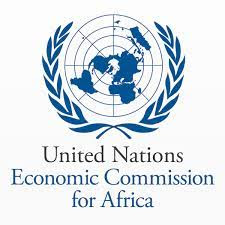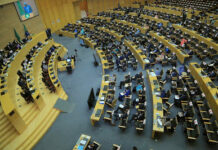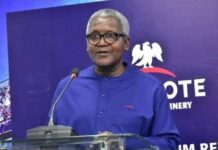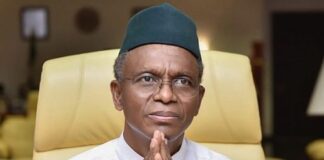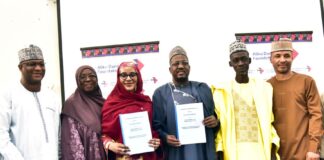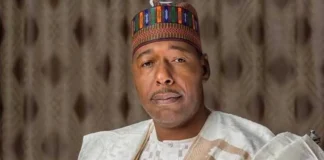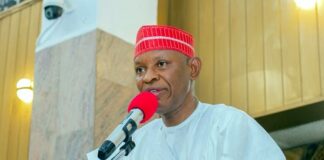The participants discussed the changes needed in policy and regulatory frameworks to ensure adequate openness, attractiveness, and readiness of African markets to private investments
ADDIS ABABA, Ethiopia, March 28, 2023/ — In the framework of support from the Italian Ministry of Foreign Affairs and International Cooperation to Advancing the electricity reform agenda by enhancing public-private dialogue, the United Nations Economic Commission for Africa (ECA) and the RES4Africa Foundation hosted the High-Level Public-Private Dialogue on Private Sector Investment in Electricity and Infrastructure Development in Africa.
The event brought together stakeholders from the public and private sectors, including policymakers, international organizations, and decision-makers working in energy and infrastructure. The participants discussed the changes needed in policy and regulatory frameworks to ensure adequate openness, attractiveness, and readiness of African markets to private investments.
“We recognize the importance of continuing on a low-carbon path, that leverages the immense potential in clean and renewable energy. Ethiopia has invested in developing geothermal, wind, solar and other areas of sustainable energy to deliver on our goals. As we aspire to restructure and develop effective national energy markets, public-private partnership is an essential requirement,” said Sultan Woli, State Minister for the Energy Development of the Federal Democratic Republic of Ethiopia.
Acting ECA Executive Secretary Antonio Pedro, stressed that the policy and regulatory challenges will require putting in place the kind of infrastructure that can support growth and prosperity. “Investments in energy and infrastructure will help leverage the opportunities for economic diversification through increased intra-African trade and regional economic integration and provide economic opportunities for the growing African youth and its vibrant population,” he said. “These investments will help us close the existing energy access gap. Currently, more than 600 million of our people do not have access to electricity and we generate only 4% of the global energy – this has to change,” he added.
Although the majority of infrastructure funding has so far come from African governments, experts stress that it is necessary to crowd-in private sector investments to finance sustainable infrastructure development at scale. RES4Africa Foundation and the ECA have joined forces to support African countries with evidence-based national electricity market regulatory reviews and promote the creation of policy and regulatory frameworks for greater openness, attractiveness, and readinessof African electricity markets to private investment.
The Event was divided into three sections; each one providing valuable insights and actionable strategies for advancing energy reform and infrastructure development in Africa. The first two parts consisted of high-level political forums on Energy Infrastructure Financing and Private Sector Role; and The Role of Policies and Regulations in Attracting Private Investments in Energy and Infrastructures, with a focus on how private-public partnerships can drive investment and growth. The third portion discussed Advancing the Electricity Reform Agenda in Africa and focused on: Developing Competitive Electricity Markets in Africa, Transitioning to Economically Competitive Markets, and Ensuring Reliable and Accessible Electricity Systems.
The discussions highlighted the importance of fostering public-private coordination for scaling up infrastructure investments in Africa. Participants noted that shaping a reform agenda requires a comprehensive and participatory approach. Policy reforms should prioritize transparency, predictability, and competitiveness, while also ensuring the protection of public interest and social welfare. This, they stressed, can be achieved by creating clear rules and guidelines, promoting competition, and reducing bureaucratic obstacles. Speakers also underscored that successful coordination between public and private sectors requires “trust, communication, and a shared vision for development.”
“To boost private investment and accelerate the development of infrastructure in Africa, the first step is to create a clear, stable and transparent regulatory framework, pointed out Salvatore Bernabei, President of RES4Africa and CEO of Enel Green Power.”
A conducive policy and regulatory environment plays a major role in mitigating policy and regulatory risks to infrastructure investment by the private sector. This is crucial for the development of the electricity sector. Also, reducing bureaucratic hurdles, simplifying processes, and improving the ease of doing business is important for the sector. Particular attention shall be given to the implementation of policies and rules through existing secondary legislation,” he said.
For his part, Abdellatif Bardach, President of the National Electricity Regulatory Authority of Morocco and of MEDREG, observed that “the private sector has a role to play in reforms that support participation in the electricity sector. Our role as regulator is to ensure clear rules and policies, a transparent decision-making process, and a level playing field.”
The Event’s key messages will define ECA and RES4Africa’s action plan for supporting interested African governments in developing conducive electricity policies and regulatory frameworks to attract private investment.
SOURCE
United Nations Economic Commission for Africa (ECA)

